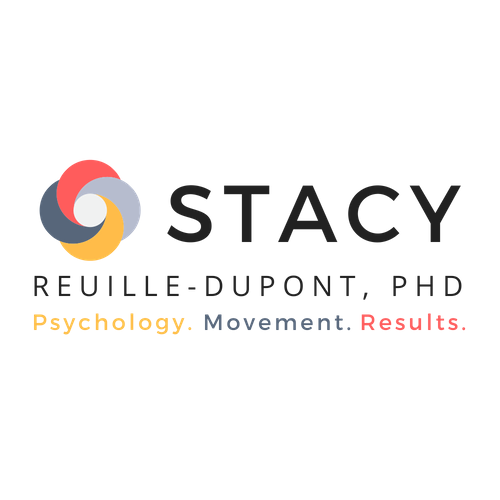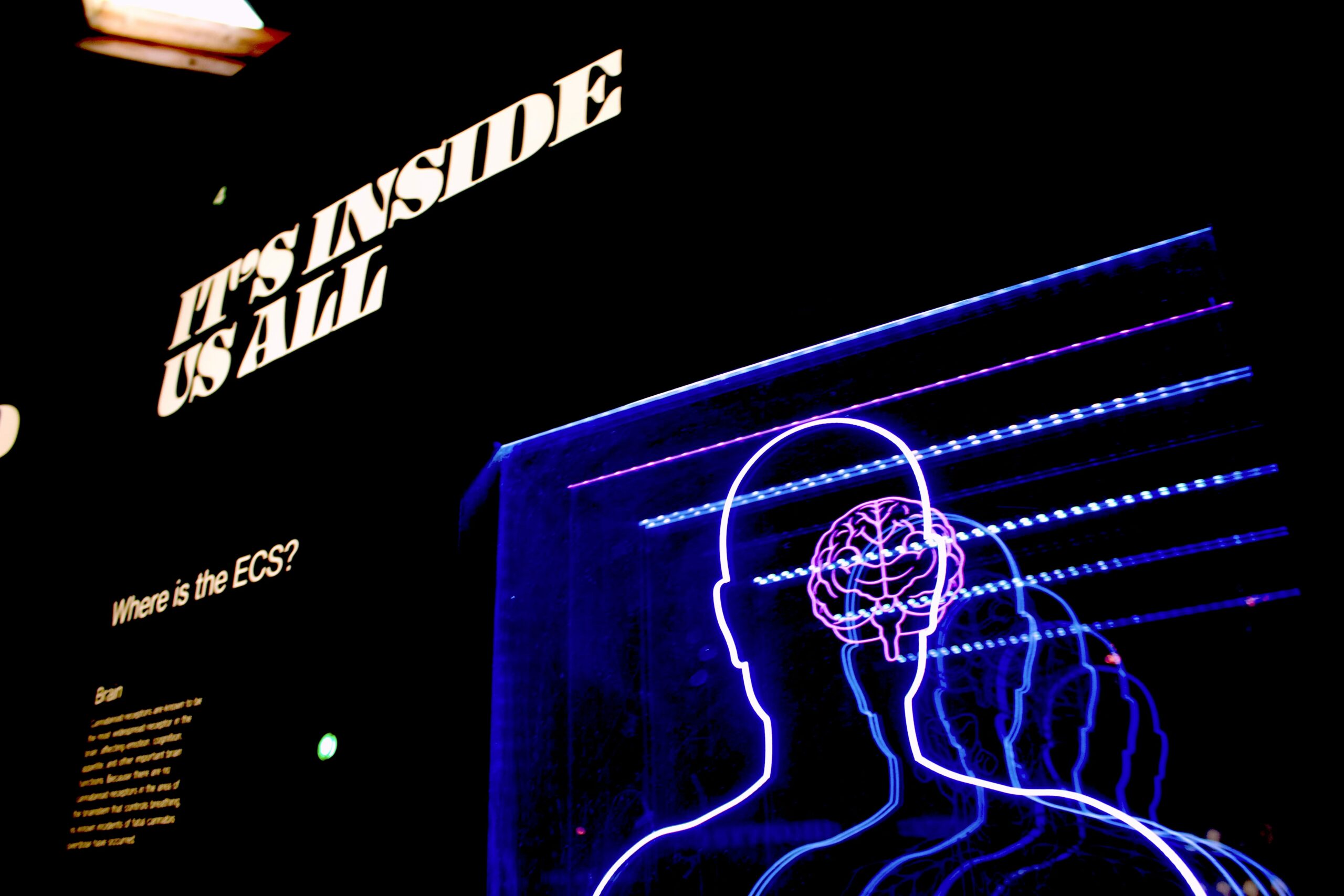Photo Credit: Photo by Bret Kavanaugh on Unsplash
In the vast realm of human understanding, few domains are as intricately intertwined as biology and psychology. The inner workings of the human mind, with its complexities and nuances, find their roots in the biological machinery of the brain.
Many of us would agree that movement helps mental health and buy into the concept that food and mood are connected, however, so many people continue to keep our biology and psychology split.
They continue to operate as though what they think and feel does not have any impact on the physical structures or believe that the injury they had is connected to how they think or feel. Yet, this siloed way of understanding our human experience is very outdated.
To unravel this intricate relationship, I’m going to highlight the insightful framework I have come to find myself working from.
Psychology & Physiology
After years of working with physiology and biomechanics while studying kinesiology (the study of human body movement). Then spending years working in mental health treating psychological disorders and spending much energy understanding somatic psychology. I found myself putting together pieces of the hard and soft sciences that explained how we experience the world around us.
Exercise science offers us concrete data and tangible results using hard sciences – biology, physiology, neurology, physics, chemistry – to explain our bodies at work and rest. Somatic psychology offers us a lens through which to blend our physical and psychological selves based on how our psychology impacts our physiology as our objective experiences explained in exercise science are impacted and impact our subjective experiences explained by the softer sciences of psychology, sociology, and spirituality practices.
Blending all the disciplines sheds light on the intersection of biology and psychology. Putting them all together shows us how movement-based psychotherapies work, why they work, and that movement is medicine.
Let’s take a deeper look at a few ways our objective and subjective selves mix.
Structure: The Blueprint of the Mind
At the core of my framework lies the concept of structure. Our brains, with their billions of neurons, interconnected through elaborate neural networks, form the structural foundation of our cognitive and emotional processes. Every thought, sensation, and behavior emerges from the intricate dance of neurons firing and communicating with one another.
Consider the hippocampus, a structure nestled deep within the brain, responsible for memory formation and spatial navigation. Through advanced imaging techniques and neuroscientific research, we have uncovered the structural underpinnings of memory formation, shedding light on disorders like Alzheimer’s disease and amnesia.
There is also a structure to our beliefs and behavior patterns. These are set up for us through our biology and our environments. We come into this world with learning from our ancestors both biologically and psychologically. These learnings foster our biology and create systems of behavior that connect us to our environments and communities.
For example, a child born to parents who experienced significant trauma earlier in life will have the DNA coding and possibly the physical structures that mark trauma experiences in the body, such as a smaller hippocampus as seen in personality disorders like Borderline and Antisocial personality disorders. As a result, people whose hippocampus has been damaged by life stressors have a more difficult time regulating their emotions. When emotions are dysregulated people struggle to be effective in relationships with others and the environment. This becomes a self-fulfilling cycle that maintains particulate belief patterns about the self and others, as well as, behavior patterns to attempt at getting social, emotional, and physical needs met. Sometimes these attempts are effective, and others not so much.
Function: Orchestrating the Symphony of the Mind
Functionality is the next pillar of this framework. Neurons communicate through electrochemical signals, facilitated by neurotransmitters, which regulate a myriad of bodily functions and mental processes. From regulating heart rate to modulating mood, these neurotransmitters orchestrate the symphony of the mind.
Once we understand how the structure is set up then we can start to see how the patterns are playing out. As a result, we can map what physiology is shifting and directing.
Take serotonin, for example, often dubbed the “happiness neurotransmitter.” Its intricate dance within the brain influences mood, appetite, and sleep patterns. Imbalances in serotonin levels have been linked to mood disorders like depression and anxiety, highlighting the crucial interplay between biology and psychology in mental health.
Evolution: Tracing the Footsteps of Human Behavior
Evolutionary principles serve as the final cornerstone. As we noted earlier, our psychological processes have evolved over millennia, shaped by the relentless forces of natural selection. Traits like fear, aggression, and empathy are deeply ingrained in our evolutionary history, and fine-tuned to enhance survival and reproductive success.
This means our experiences in our lives are not just a result of us, they are part of a much larger pattern of our family history and the environments our ancestors found themselves within.
When we understand how the complexity of connection is influencing our lives we have a much greater chance of making decisions that can positively impact our lives and shape our existence in the way that we would like our life to unfold.
Consider the fight-or-flight response, a primal instinct engraved in the depths of our psyche. This evolutionary adaptation served our ancestors well in the face of imminent danger, ensuring their survival in hostile environments. Today, we see echoes of this ancient mechanism in our physiological and psychological responses to stress. Sometimes it is over or under-active and is no longer serving us well.
Psychotherapy can help us rewrite the system to create a new pattern of stress response and thus a new system of engaging with the world around us. This will in turn bring new experiences, which will influence our neuron growth and development as well as our increased learning and knowledge base.
Unlocking the Mysteries: Implications for Research and Treatment
By embracing the concept that our psychology and physiology are tightly woven together as a framework for human beliefs and behavior, we gain invaluable insights into the intricate dance between biology and psychology.
From unraveling the neural circuits of addiction to deciphering the genetic basis of mental illness, this integration offers a fertile ground for exploration and discovery.
As we continue to unlock the mysteries of the human mind, armed with the tools of modern science and the wisdom of evolutionary history, we inch closer to a deeper understanding of ourselves.
I hope that each of us will do the hard work of unearthing our patterns of psychology and physiology and embark on this journey of exploration. Doing this hard work and making personal changes, creates change for the larger world around us.
We can make our communities and the world a better place by improving ourselves. We can stop siloing, judging, blaming, shaming, and behaving in ways that keep us stuck in old patterns as we navigate the complex nexus of biology and psychology.
Thus the world becomes better, one person, one change at a time. We all have a role to play and a responsibility in creating a better world.
Movement is Medicine Check our Our Mind Over Matter Monthly Coaching Prorgram
#MindBodyRecovery #ADHDInsight #SomaticPsych #HolisticHealingJourney #MentalWellnessMatters #EmbraceChangeHeal #TherapeuticTransformation #WholeSelfHealing #MindBodyOptimization #PsychologyOfWellness #TrainMindBody #NutritionPsych #MindfulMovement #HolisticHealthCoach #MentalFitnessJourney #PsychoWellness #MindBodyFuel #SelfOptimizationTriad #StudioBLife #VibrantLiving #EmbodiedSpiritSelf #MindOverMatter #MovementIsMedicine #MindBodyIntegration #MentalHealthCoaching #MovementBasedPsychotherapy #ClinicalPsychologyMovementInterventions #ExerciseForMentalHealthBenefits #MindfulMovementForMentalWellness #FitnessForAnxiety #MovementForEatingDisorders #PersonalTrainingForDepression #EatingForEmotionalBalance #Gut-BrainConnection #NutritionalTherapyForMentalHealth #MindfulEatingForAnxietyRelief #FoodToHelpDepression #NutrientTherapyForMentalHealth
I WANT YOU TO FEEL VIBRANT AND ALIVE, COURAGEOUS,
WORTHY, AND FULL OF AMAZEMENT AND WONDER.
I help people take back their lives and heal physically, emotionally, mentally, and spiritually. My goal is to give you the tools you need to live a magnetic life, drawing to you the things you want, and creating your highest most incredible life.
- Let’s Get Acquainted. Learn More About Me
- You Can Also Book a Consultation Session with Dr. Stacy Here
Check out Online and In-Person Programs at StudioB.Life, our integrative psychology clinic where we use movement and nutrition alongside behavioral health interventions to help you Become the Best Version of You, You Can Be.




 Twitter
Twitter Facebook
Facebook Linkedin
Linkedin






